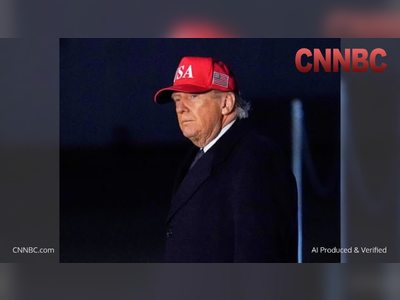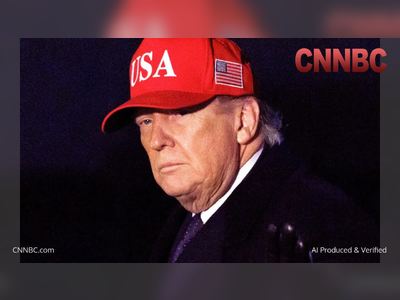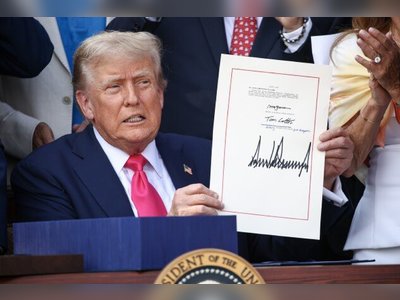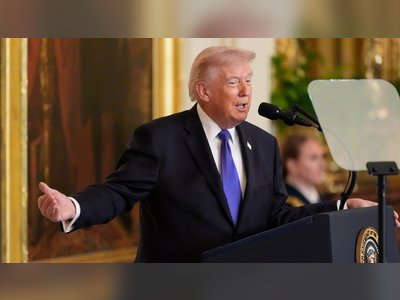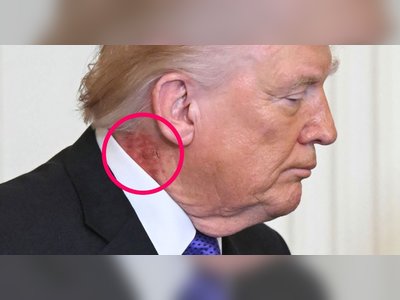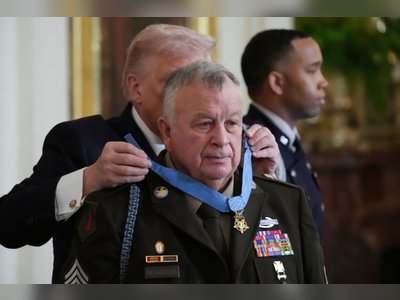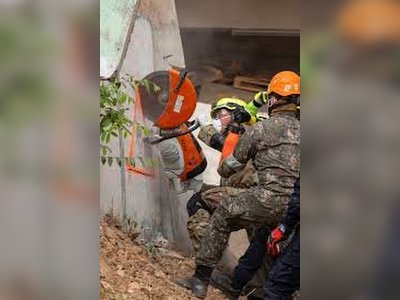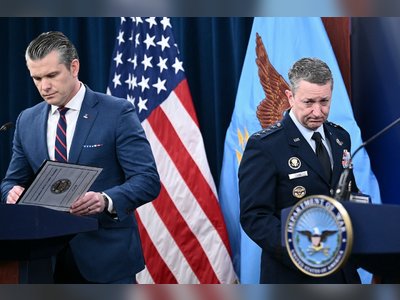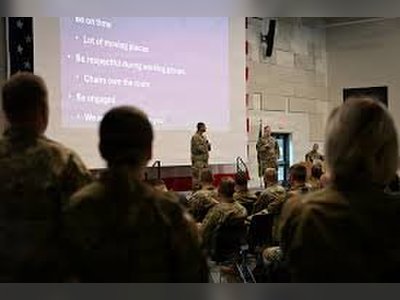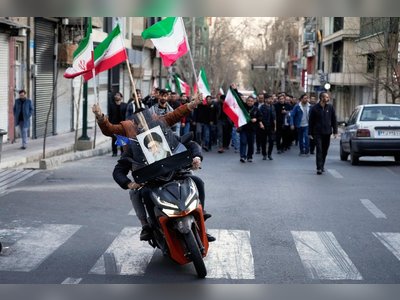
Trump Addresses Ukraine Conflict Amid Sanctions Discussions and Military Aid
US President Donald Trump evaluates potential sanctions against Russia and military support for Ukraine amidst tensions over a proposed ceasefire.
Brussels – In light of Russian President Vladimir Putin's dismissal of a US proposal for a 30-day ceasefire in Ukraine, US President Donald Trump stated during an NBC News interview on May 4 that his decision to endorse a sanctions bill proposed by Republican Senator Lindsey Graham will be contingent on Russia's approach toward peace in the ongoing conflict.
On May 1, Graham, a close ally of Trump in Congress, indicated that a majority of senators—at least 72—would support additional sanctions against Russia and proposed significant tariffs on nations that back it.
This development reflects a growing urgency in Washington regarding the prolonged negotiations aimed at resolving the Russia-Ukraine conflict.
While President Trump expressed optimism about the situation, he conveyed concerns about Moscow's reluctance to engage meaningfully in negotiations, stating, “We want Russia and Ukraine to accept an agreement.
We think we’re close enough.” However, he noted differing levels of proximity to a resolution, saying, “I think we’re closer with one side, and maybe not as close with the other.” This comment was made in the context of a minerals agreement signed on May 1 with Ukrainian President Volodymyr Zelensky, suggesting alignment between the US and Ukraine.
Reflecting on the challenging dynamics between the two leaders, Trump remarked, “Maybe peace is not possible.
There is tremendous hatred” between Russian and Ukrainian factions, indicating the deep animosity fostered by three years of conflict.
Despite acknowledging the difficulties, he remained hopeful, citing “very good chances of succeeding” in future negotiations.
Trump had previously criticized Putin on April 26, accusing him of lacking a genuine interest in terminating the hostilities.
The mediation role that Trump has attempted to assume since entering office has become increasingly complex, evidenced by threats to withdraw from the mediation process altogether.
Meanwhile, neither Ukraine nor the United States has observed any indicative openness from Moscow regarding a comprehensive ceasefire, with Russian officials proposing only a three-day truce for Victory Day celebrations on May 9. The Kremlin is set to host multiple world leaders, including Chinese President Xi Jinping, during commemorative events for the 80th anniversary of the Soviet victory in World War II.
In related developments, the US military has commenced the transfer of a Patriot missile defense system from Israel to Ukraine, as reported by various sources.
This strategic decision comes amid escalating Russian assaults on Ukrainian cities, including Kyiv, Odesa, Kharkiv, and Sumy, responding to urgent requests from President Zelensky for enhanced air defense.
In an address on April 13, Zelensky expressed the willingness to acquire ten Patriot systems to bolster defensive measures in heavily populated areas.
Details regarding Trump's stance on this military maneuver remain unspecified, as it is unclear whether he advocated for this action or if it was already in motion during the preceding administration under President Joe Biden.
Additionally, discussions among Western allies have emerged concerning logistics for potentially relocating another missile battery from either Germany or Greece to support Ukraine.
On May 1, Graham, a close ally of Trump in Congress, indicated that a majority of senators—at least 72—would support additional sanctions against Russia and proposed significant tariffs on nations that back it.
This development reflects a growing urgency in Washington regarding the prolonged negotiations aimed at resolving the Russia-Ukraine conflict.
While President Trump expressed optimism about the situation, he conveyed concerns about Moscow's reluctance to engage meaningfully in negotiations, stating, “We want Russia and Ukraine to accept an agreement.
We think we’re close enough.” However, he noted differing levels of proximity to a resolution, saying, “I think we’re closer with one side, and maybe not as close with the other.” This comment was made in the context of a minerals agreement signed on May 1 with Ukrainian President Volodymyr Zelensky, suggesting alignment between the US and Ukraine.
Reflecting on the challenging dynamics between the two leaders, Trump remarked, “Maybe peace is not possible.
There is tremendous hatred” between Russian and Ukrainian factions, indicating the deep animosity fostered by three years of conflict.
Despite acknowledging the difficulties, he remained hopeful, citing “very good chances of succeeding” in future negotiations.
Trump had previously criticized Putin on April 26, accusing him of lacking a genuine interest in terminating the hostilities.
The mediation role that Trump has attempted to assume since entering office has become increasingly complex, evidenced by threats to withdraw from the mediation process altogether.
Meanwhile, neither Ukraine nor the United States has observed any indicative openness from Moscow regarding a comprehensive ceasefire, with Russian officials proposing only a three-day truce for Victory Day celebrations on May 9. The Kremlin is set to host multiple world leaders, including Chinese President Xi Jinping, during commemorative events for the 80th anniversary of the Soviet victory in World War II.
In related developments, the US military has commenced the transfer of a Patriot missile defense system from Israel to Ukraine, as reported by various sources.
This strategic decision comes amid escalating Russian assaults on Ukrainian cities, including Kyiv, Odesa, Kharkiv, and Sumy, responding to urgent requests from President Zelensky for enhanced air defense.
In an address on April 13, Zelensky expressed the willingness to acquire ten Patriot systems to bolster defensive measures in heavily populated areas.
Details regarding Trump's stance on this military maneuver remain unspecified, as it is unclear whether he advocated for this action or if it was already in motion during the preceding administration under President Joe Biden.
Additionally, discussions among Western allies have emerged concerning logistics for potentially relocating another missile battery from either Germany or Greece to support Ukraine.


